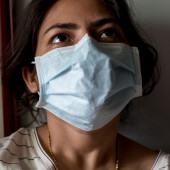Our website uses cookies so we can analyse our site usage and give you the best experience. Click "Accept" if you’re happy with this, or click "More" for information about cookies on our site, how to opt out, and how to disable cookies altogether.
We respect your Do Not Track preference.

Our lives have been turned upside down by the Covid-19 virus pandemic. For medical practices it began on Sunday 22 March 2020 when the Royal New Zealand College of General Practitioners asked GPs to rapidly shift to virtual consults first.
Just a day later came the Prime Minister’s lockdown announcement. The national shift for so many to working from home, or working with people based in their homes, led to a meteoric rise in the use of tools enabling virtual meetings or consultations.
Futurists a long time ago forecast virtual meetings to become the norm. But there’s been little economic, practical or emergency impetus for its rapid and widespread adoption – until now.
None of this is any surprise to GPs and NPs who needed quickly to find ways to diagnose patients and prescribe treatment while keeping themselves and their patients safe from the virus.
Working from home or working with people based in their homes has led to a meteoric rise in the use of tools that enable us to hold virtual meetings with colleagues and business or professional counterparts. For teachers, the situation has meant holding virtual classes with students, and for wellbeing and fitness trainers, there’s been the increased use of online platforms to hold fitness or yoga classes with clients. Counsellors and therapists are holding online consultations and so it goes.
Virtual meetings are an essential part of a new way of working and one that was forecast by futurists a long time ago to become the norm. But there’s been little economic, practical or emergency impetus for its rapid and widespread adoption – until now.
None of this should be any surprise to health professionals, especially doctors who need ways to diagnose patients and prescribe treatment while keeping themselves and their patients safe from the virus while respecting social distancing.
NZ Telehealth Forum
The Ministry of Health’s New Zealand Telehealth Forum is playing an important role in supporting the delivery of distance medicine.
Its website lists a range of telehealth solutions to enable practitioners to continue to safety provide care to patients during the Covid-19 alerts. As well as health specific video meeting providers, including ones that are integrated into Patient Management Systems, there are also non-specific platforms available for use by doctors. Having a range of options is necessary because individual patients might have limited access to or ability with technology.
Zooming during lockdown
We know of workplaces that have been using Google Hangouts, Skype, Facetime and other options. A relative newcomer, Zoom, has been enjoying a meteoric increase in subscribers and users because of its easy functionality and increasing ubiquity. Telehealth noted Zoom was becoming increasingly popular with health providers and consumers. But this surge in popularity has exposed some privacy and security deficiencies.
One is user inexperience. New users have been caught out by unwelcome strangers ‘zoom bombing’ meetings which had been advertised to a general audience but done without putting in adequate security checks on incoming attendees, such as the waiting room function. The Financial Times recently suspended one of its journalists for spying on rival media editorial meetings which were held on Zoom. The incident highlights the need for good meeting security settings.
Another was the company’s marketing overreach in claiming the platform offered end-to-end encryption. To be fair to Zoom, it responded quickly to criticism and is launching an improved version which it says addresses the privacy issues raised.
Our office used Zoom during the lockdown. We used it for internal meetings and for meetings with outside parties. We created our own internal guidance on how to provide a secure virtual space for these meetings. This guidance could also be relevant to other virtual meeting systems that you may use. While other systems may differ in form, the guidance highlights the types of safeguards you need to ensure that your consultations are private and secure.
Here’s what we advise for Zoom:
Health Information Privacy Code
This last point reflects rule 2 of the Health Information Privacy Code (HIPC). Wherever possible, collect the information from the individual and try and ensure the individual has authorised the collection of that information.
If you are making a recording of a consultation and have the consent of the patient, rule 5 of the HIPC says store the information securely. In the case of a recording, make sure it is kept on a password protected device.
You’ll also need to be mindful of rule 6 – how do you make the information available if the patient requests it. If your practice is to delete the recording, make sure your notes of the meeting are up to date and accurate so you can comply with an information request even if you no longer have the recording.
While New Zealand is no longer in pandemic lockdown, the impact is projected to be felt for a long time. For doctors, business as usual could well mean more video consultations. If that proves to be the case, a new normal will mean knowing how to use the technology proficiently and securely.
(First published in the May issue of NZ Doctor)
Image credit: Coronavirus face mask by happypixel19 from Pixabay.
Back